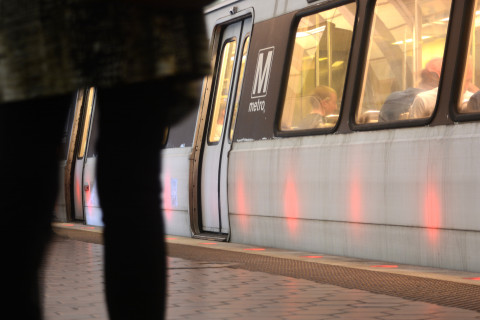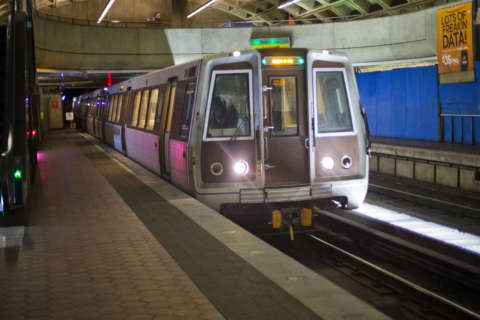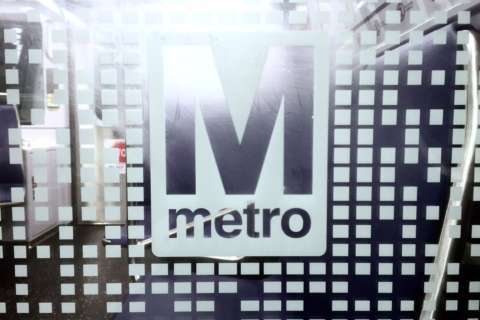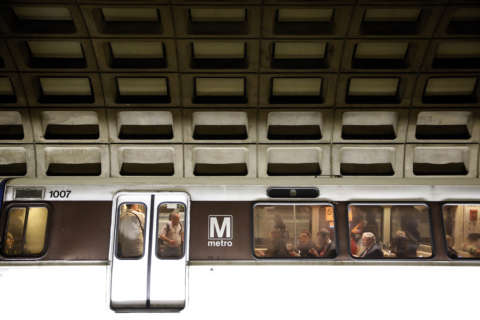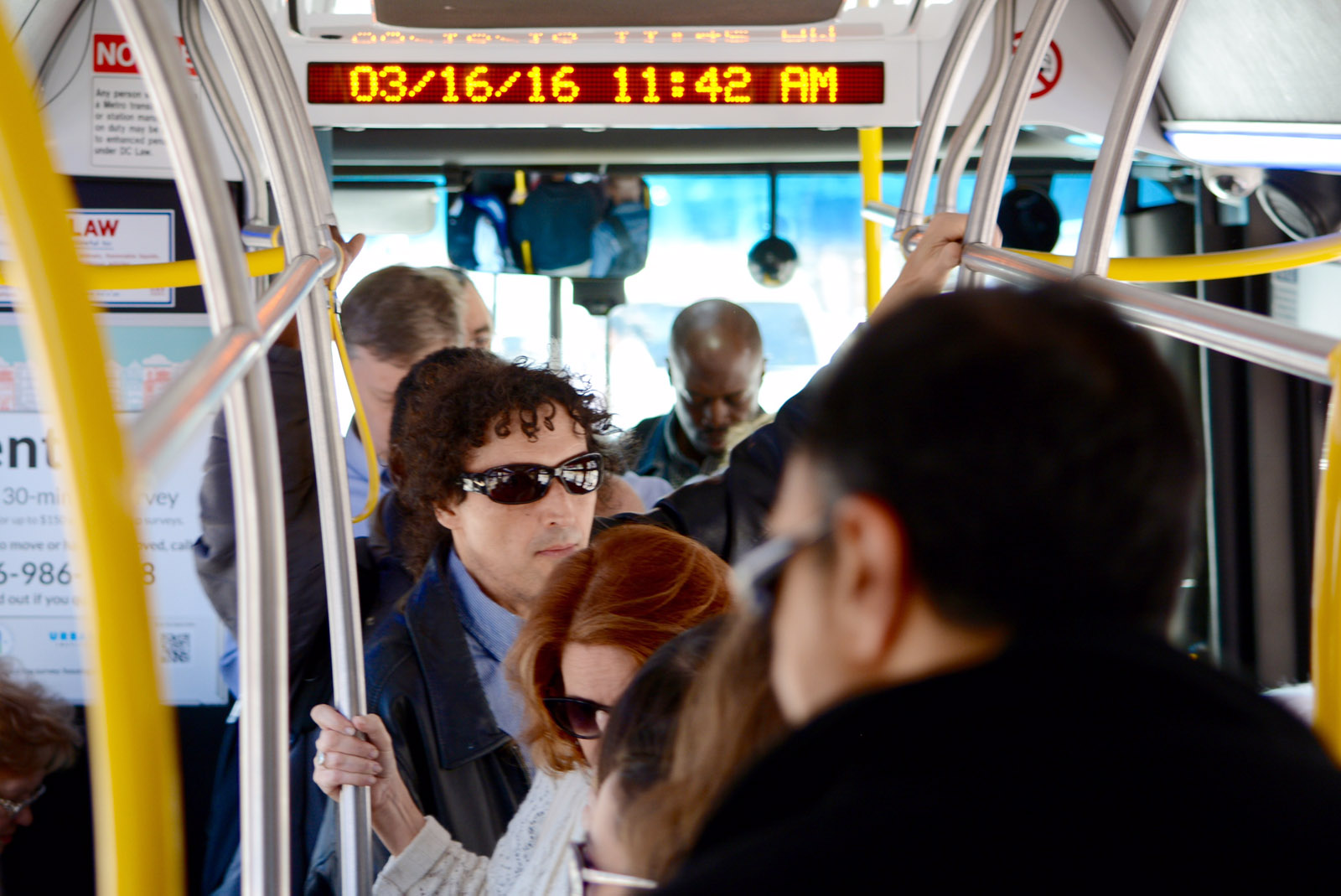WASHINGTON — About seven out of 10 voters in the D.C. region support an increase in public funding for Metro, and about half support new taxes to pay for it, according to a survey completed for a coalition of business groups pushing for Metro reforms.
The survey, provided to WTOP ahead of a public release Thursday, also finds that 53 percent of voters have at least a somewhat favorable view of the Metro system, compared to 30 percent who have a somewhat or very unfavorable view of Metro.
The online survey of 621 registered voters in D.C., Maryland and Northern Virginia was conducted in mid-October. It has a margin of error of 3.9 percent.
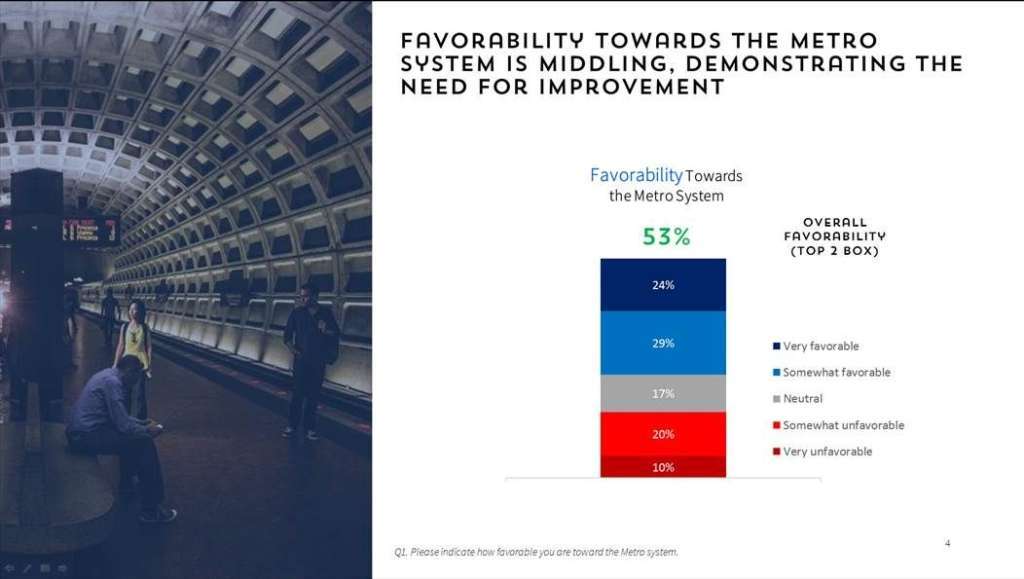
Ed Walter, chairman of the Federal City Council, said the survey supports the push from his group, the Greater Washington Board of Trade, The 2030 Group, Greater Washington Partnership, and others for major changes to Metro’s governance, operations and funding.
“It’s clear from the most recent Metro budget that the system continues to have both short-term and long-term financial needs, which are going to require dedicated funding. We think our survey demonstrates that the public values Metro and overwhelmingly supports both reform and dedicated funding, so from our perspective, we think the stars are beginning to align,” Walter said.
Metro General Manager Paul Wiedefeld officially presents his budget proposal for the year beginning next July to the Metro Board Finance Committee on Thursday. Wiedefeld is putting pressure on local governments to decide whether to increase local funding for the system, raise fares or cut service.
Wiedefeld’s proposal does not include new fare hikes or service cuts, but it does not restore any service cut in June either. Maryland, D.C. and local governments in Virginia have said the $185 million proposed local government funding increase would be difficult or impossible to afford.
Of the 70 percent of survey respondents who support additional public funding for the system, Edelman Intelligence Vice President Matthew Cunningham said about 70 percent support an increase in taxes. That equates to around half of those asked overall.
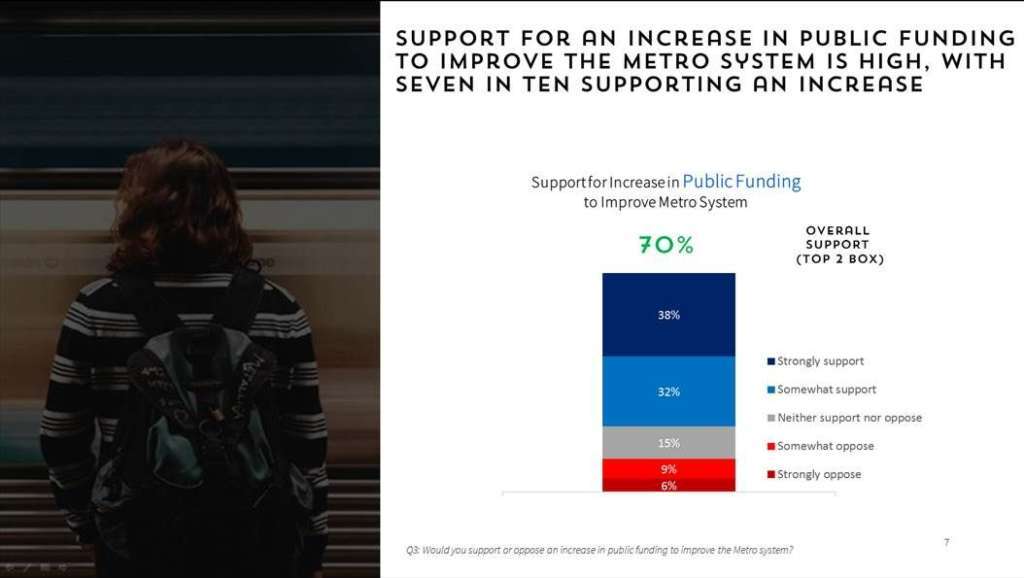
“There’s higher support for tax increases, especially when you’re comparing that to the alternative of less service, or less frequent service or increased fares,” Cunningham said.
More than half of those asked believe Metro is now headed in the right direction, as opposed to 28 percent who said the system remains on the wrong track.
The survey suggests 94 percent of voters see Metro as valuable to the region.
“There’s always been concern as to whether or not our citizens support the spending of additional funds to support Metro, and we view the survey as indicating that they do support that,” Walter said.
A separate group of small business leaders has allied with the union-backed “Save Our System” group to push for increased service and hours, and reductions in fares in the new budget. Those business owners, including Andy Shallal of Busboys and Poets, also emphasize the need for new dedicated funding for the system.
Former District Department of Transportation Director Emeka Moneme, now deputy executive director at the Federal City Council, believes big changes can happen now for Metro because it is “a crisis moment.”
“I think people recognize that this is the time not just to put a Band-Aid on it … but to actually put it in place so that we can be competitive as a region over the long haul,” Moneme said.
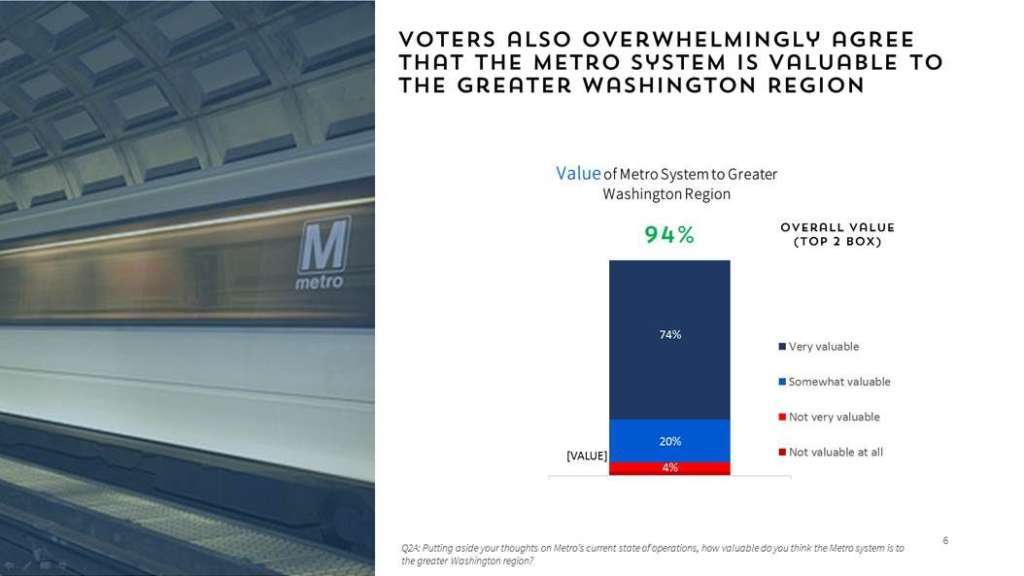
Governance
In the survey for the group of larger businesses, 90 percent of voters agreed that Metro must have an effective governance structure to reach its full potential.
Despite earlier promises from Virginia leaders that a long-awaited report from former U.S. Transportation Secretary Ray LaHood would be released in October, Walter said he now expects that report to be made public shortly after Virginia’s statewide election Tuesday, Nov. 7. That timeline is in line with what other sources have suggested to WTOP in recent weeks.
“We think that will provide a road map for the governance changes that we’ve been advocating,” Walter said.
“We need new governance, we need to improve operations, and we ultimately need a source of dedicated funding, and if we can accomplish all of those three things, we can set Metro on the right path going forward and … that creates a great opportunity for the overall future of the region,” Walter said.
Economic case for change
Greater Washington Board of Trade Board Member Jim Dyke, a former Metro Board Member from Virginia, said the economic case for Metro is the basis of the business community’s arguments for the General Assembly to back increased funding for the system.
“Metro has to succeed, otherwise it’s going to have a significant impact not only on Northern Virginia, but the rest of the Commonwealth. And those business facts, those economic facts, pretty well establish that WMATA is a major economic development engine that we need to preserve,” Dyke said.
Wiedefeld’s plans to contract out more work, cut pension obligations and get federal law adjusted to help Metro in arbitration cases are “spot on,” Dyke said.
Since he left the Metro Board, Dyke said he feels support has grown for changes.
“The momentum is building up; sometimes, it takes awhile for people to recognize that, but I think we’ve got a confluence … of all these things falling in place now … to create an atmosphere where I think change is coming,” Dyke said.
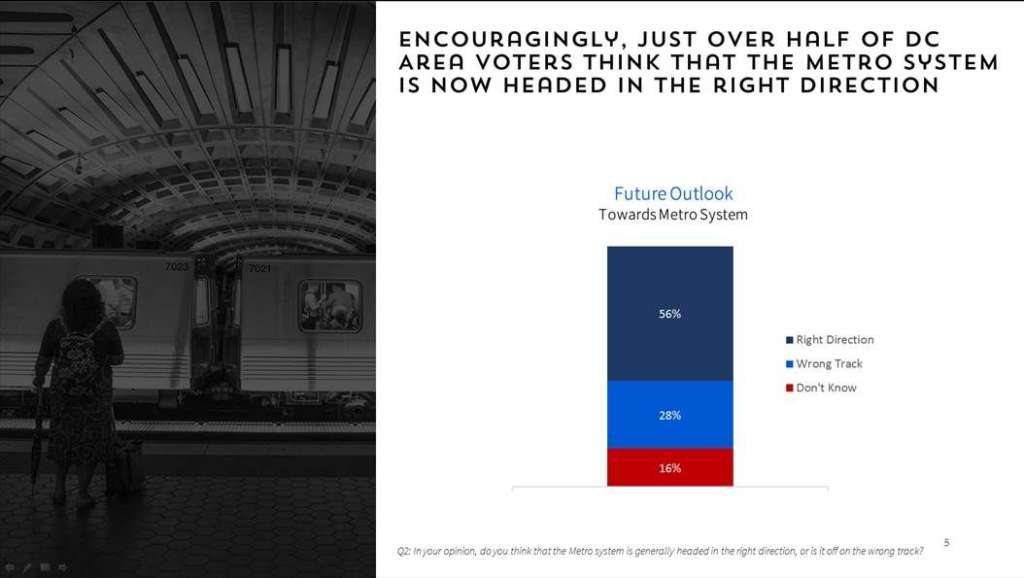
The importance has risen amid sequestration and other cuts to federal spending, since the region needs to attract new businesses, Dyke says.
“The business community is committed to be fully engaged to make this happen, and I think that’s very significant, not only for the businesses but for the employees,” he said.
Among the governance changes, Dyke hopes to ensure Metro Board members have a primary responsibility to the transit agency, rather than a dual role with the jurisdictions that appoint them.
When the board has potentially acted in Metro’s interests over those of jurisdictions though, it has prompted sniping. Last week, the Metro Board approved a Purple Line land transfer and board reforms after two weeks of questions over whether Metro was going to be fairly compensated for the property. The issue was also held up by unrelated demands from D.C. Council member and Metro Board Chairman Jack Evans.

